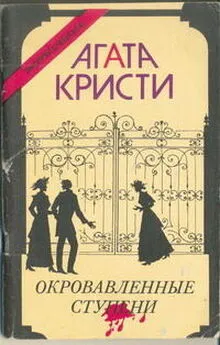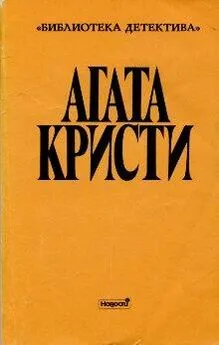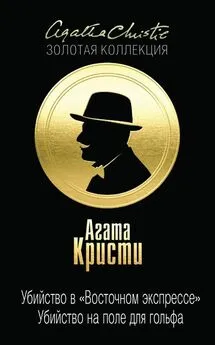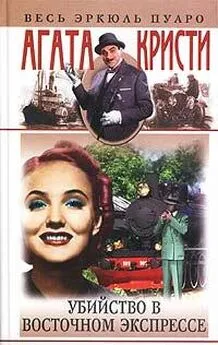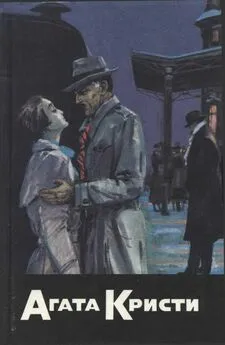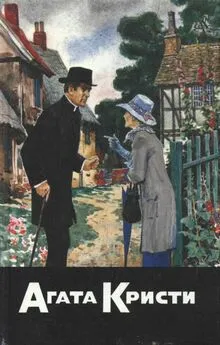Агата Кристи - Убийство в «Восточном экспрессе» / Murder on the Orient Express
- Название:Убийство в «Восточном экспрессе» / Murder on the Orient Express
- Автор:
- Жанр:
- Издательство:Литагент 1 редакция (7)
- Год:1934
- ISBN:978-5-04-114084-7
- Рейтинг:
- Избранное:Добавить в избранное
-
Отзывы:
-
Ваша оценка:
Агата Кристи - Убийство в «Восточном экспрессе» / Murder on the Orient Express краткое содержание
Убийство в «Восточном экспрессе» / Murder on the Orient Express - читать онлайн бесплатно ознакомительный отрывок
Интервал:
Закладка:
“And having arrived at the fact that there is – eh bien, where is he now?”
“There are only two answers to that, mon cher. Either he is still hidden on the train in a place of such extraordinary ingenuity that we cannot even think of it; or else he is, as one might say, two persons. That is, he is both himself – the man feared by M. Ratchett – and a passenger on the train so well disguised that M. Ratchett did not recognise him.”
“It is an idea, that,” said M. Bouc, his face lighting up. Then it clouded over again. “But there is one objection—”
Poirot took the words out of his mouth.
“The height of the man. It is that you would say? With the exception of Mr. Ratchett’s valet, all the passengers are big men – the Italian, Colonel Arbuthnot, Hector MacQueen, Count Andrenyi. Well, that leaves us the valet – not a very likely supposition. But there is another possibility. Remember the ‘womanish’ voice. That gives us a choice of alternatives. The man may be disguised as a woman, or, alternatively, he may actually be a woman. A tall woman dressed in men’s clothes would look small.”
“But surely Ratchett would have known—”
“Perhaps he did know. Perhaps, already, this woman had attempted his life, wearing a mares clothes the better to accomplish her purpose. Ratchett may have guessed that she would use the same trick again, so he tells Hardman to look for a man. But he mentions, however, a womanish voice.”
“It is a possibility,” said M. Bouc. “But—”
“Listen, my friend, I think that I should now tell you of certain inconsistencies noticed by Dr. Constantine.”
He retailed at length the conclusions that he and the doctor had arrived at together from the nature of the dead man’s wounds. M. Bouc groaned and held his head again.
“I know,” said Poirot sympathetically. “I know exactly how you feel. The head spins, does it not?”
“The whole thing is a fantasy!” cried M. Bouc.
“Exactly. It is absurd – improbable – it cannot be. So I myself have said. And yet, my friend, there it is! One cannot escape from the facts.”
“It is madness!”
“Is it not? It is so mad, my friend, that sometimes I am haunted by the sensation that really it must be very simple… But that is only one of my ‘little ideas’!”
“Two murderers,” groaned M. Bouc. “And on the Orient Express—”
The thought almost made him weep.
“And now let us make the fantasy more fantastic,” said Poirot cheerfully. “Last night on the train, there are two mysterious strangers. There is the Wagon Lit attendant answering to the description given us by M. Hardman, and seen by Hildegarde Schmidt, Colonel Arbuthnot and M. MacQueen. There is also a woman in a red kimono – a tall slim woman, seen by Pierre Michel, Miss Debenham, M. MacQueen and myself (and smelt, I may say, by Colonel Arbuthnot!). Who was she? No one on the train admits to having a scarlet kimono. She, too, has vanished. Was she one and the same with the spurious Wagon Lit attendant? Or was she some quite distinct personality? Where are they, these two? And incidentally, where are the Wagon Lit uniform and the scarlet kimono?”
“Ah! that is something definite.” M. Bouc sprang up eagerly. “We must search all the passengers’ luggage. Yes, that will be something.”
Poirot rose also.
“I will make a prophecy,” he said.
“You know where they are?”
“I have a little idea.”
“Where, then?”
“You will find the scarlet kimono in the baggage of one of the men, and you will find the uniform of the Wagon Lit conductor in the baggage of Hildegarde Schmidt.”
“Hildegarde Schmidt? You think—”
“Not what you are thinking. I will put it like this. If Hildegarde Schmidt is guilty, the uniform may be found in her baggage. But if she is innocent, it certainly will be.”
“But how—” began M. Bouc and stopped. “What is this noise that approaches?” he cried. “It resembles a locomotive in motion.”
The noise drew nearer. It consisted of shrill cries and protests in a woman’s voice. The door at the end of the dining-car burst open. Mrs. Hubbard burst in.
“It’s too horrible!” she cried. It’s just too horrible. In my sponge-bag. My sponge-bag! A great knife – all over blood?”
And suddenly toppling forward, she fainted heavily on M. Bouc’s shoulder.
Chapter 14
The Evidence Of The Weapon
With more vigour than chivalry, a Bouc deposited the fainting lady with her head on the table. Dr. Constantine yelled for one of the restaurant attendants, who came at a run.
“Keep her head so,” said the doctor. “If she revives give her a little cognac. You understand?”
Then he hurried off after the other two. His interest lay wholly in the crime – swooning middle-aged ladies did not interest him at all.
It is possible that Mrs. Hubbard revived rather more quickly by these methods than she might otherwise have done. A few minutes later she was sitting up, sipping cognac from a glass proffered by the attendant, and talking once more.
“I just can’t tell you how terrible it was! I don’t suppose anybody on this train can understand my feelings. I’ve always been very, very sensitive ever since I was a child. The mere sight of blood – ugh! Why, even now I get faint when I think about it!”
The attendant proffered the glass again.
“Encore un peu, Madame?”
“D’you think I’d better? I’m a lifelong teetotaller. I never touch spirits or wine at any time. All my family are abstainers. Still, perhaps as this is only medicinal—”
She sipped once more.
In the meantime Poirot and M. Bouc, closely followed by Dr. Constantine, had hurried out of the restaurant car and along the corridor of the Stamboul coach towards Mrs. Hubbard’s compartment.
Every traveller on the train seemed to be congregated outside the door. The conductor, a harassed look on his face, was keeping them back.
“Mais il n’y a rien à voir,” he said, and repeated the sentiment in several other languages.
“Let me pass if you please,” said M. Bouc. Squeezing his rotundity past the obstructing passengers he entered the compartment, Poirot close behind him.
“I am glad you have come, Monsieur,” said the conductor with a sigh of relief. “Everyone has been trying to enter. The American lady – such screams as she gave – ma foi, I thought she too had been murdered! I came at a run, and there she was screaming like a mad woman; and she cried out that she must fetch you, and she departed screeching at the top of her voice and telling everybody whose carriage she passed what had occurred.” He added, with a gesture of the hand: “It is in there, Monsieur. I have not touched it.”
Hanging on the handle of the door that gave access to the next compartment was a large-checked rubber sponge-bag. Below it on the floor, just where it had fallen from Mrs. Hubbard’s hand, was a straight-bladed dagger – a cheap affair, sham Oriental with an embossed hilt and a tapering blade. The blade was stained with patches of what looked like rust.
Poirot picked it up delicately.
“Yes,” he murmured. “There is no mistake. Here is our missing weapon all right – eh, doctor?”
The doctor examined it.
“You need not be so careful,” said Poirot. “There will be no fingerprints on it save those of Mrs. Hubbard.”
Constantine’s examination did not take long.
“It is the weapon all right,” he said. “It would account for any of the wounds.”
“I implore you, my friend, do not say that!”
The doctor looked astonished.
“Already we are heavily overburdened by coincidence. Two people decided to stab M. Ratchett last night. It is too much of a good thing that both of them should select the same weapon.”
“As, to that, the coincidence is not perhaps so great as it seems,” said the doctor. “Thousands of these sham Eastern daggers are made and shipped to the bazaars of Constantinople.”
“You console me a little, but only a little,” said Poirot.
He looked thoughtfully at the door in front of him, then, lifting off the sponge-bag, he tried the handle. The door did not budge. About a foot above the handle was the door bolt. Poirot drew it back and tried again, but still the door remained fast.
“We locked it from the other side, you remember,” said the doctor.
“That is true,” said Poirot absently. He seemed to be thinking about something else. His brow was furrowed as though in perplexity.
“It agrees, does it not?” said M. Bouc. “The man passes through this carriage. As he shuts the communicating door behind him he feels the sponge-bag. A thought comes to him and he quickly slips the blood-stained knife inside. Then, all unwitting that he has awakened Mrs. Hubbard, he slips out through the other door into the corridor.”
“As you say,” murmured Poirot. “That is how it must have happened.”
But the puzzled look did not leave his face.
“But what is it?” demanded M. Bouc. “There is something, is there not, that does not satisfy you?”
Poirot darted a quick look at him.
“The same point does not strike you? No, evidently not. Well, it is a small matter.”
The conductor looked into the carriage. “The American lady is coming back.”
Dr. Constantine looked rather guilty. He had, he felt, treated Mrs. Hubbard rather cavalierly. But she had no reproaches for him. Her energies were concentrated on another matter. “I’m going to say one thing right out,” she said breathlessly as she arrived in the doorway.
“I’m not going on any longer in this compartment! Why, I wouldn’t sleep in it to-night if you paid me a million dollars.”
“But, Madame—”
“I know what you are going to say, and I’m telling you right now that I won’t do any such thing! Why, I’d rather sit up all night in the corridor.”
She began to cry.
“Oh, if my daughter could only know – if she could see me now, why—”
Poirot interrupted firmly.
“You misunderstand, Madame. Your demand is most reasonable. Your baggage shall be changed at once to another compartment.”
Mrs. Hubbard lowered her handkerchief.
“Is that so? Oh! I feel better right away. But surely it’s all full, unless one of the gentlemen —
M. Bouc spoke.
“Your baggage, Madame, shall be moved out of this coach altogether. You shall have a compartment in the next coach, which was put on at Belgrade.”
“Why, that’s splendid. I’m not an extra nervous woman, but to sleep in that compartment next door to a dead man!” She shivered. “It would drive me plumb crazy.”
“Michel,” called M. Bouc. “Move this baggage into a vacant compartment in the Athens – Paris coach.”
“Yes, Monsieur. The same one as this – the No. 3?”
“No,” said Poirot before his friend could reply. “I think it would be better for Madame to have a different number altogether. The No. 12, for instance.”
“Bien, Monsieur.”
The conductor seized the luggage. Mrs. Hubbard turned gratefully to Poirot.
“That’s very kind and delicate of you. I appreciate it, I assure you.”
“Do not mention it, Madame. We will come with you and see you comfortably installed.”
Mrs. Hubbard was escorted by the three men to her new home. She looked round her happily.
“This is fine.”
“It suits you, Madame? It is, you see, exactly like the compartment you have left.”
“That’s so – only it faces the other way. But that doesn’t matter, for these trains go first one way and then the other. I said to my daughter, ‘I want a carriage facing the engine.’ and she said, ‘Why, Mamma, that’ll be no good to you, for if you go to sleep one way, when you wake up, the train’s going the other!’ And it was quite true what she said. Why, last evening we went into Belgrade one way and out the other.”
Читать дальшеИнтервал:
Закладка:

